When it comes to working with AI, having the right ChatGPT skills is a requirement for your career growth and success. As the demand for ChatGPT expertise continues to rise, professionals who can effectively leverage this technology hold a significant advantage over those who can’t. Developing sought-after ChatGPT skills enables you to:
- Create highly personalized and engaging AI-powered content
- Streamline workflows and boost productivity across industries
- Pioneer responsible AI practices that prioritize ethics and mitigate bias
In this blog post, we’ll guide you through the top 10 ChatGPT skills you need to learn, providing practical insights to help you stay ahead of the curve. We’ll also showcase how our comprehensive Generative AI Fundamentals in Python skill path offers the ideal launchpad for picking up these in-demand skills. By honing your ChatGPT abilities, you’ll position yourself at the front of the AI revolution, opening up exciting new career opportunities.
Why Learning ChatGPT Skills Matters
ChatGPT skills are becoming increasingly important for professionals aiming to stay competitive in a rapidly evolving job market. Generative AI (GenAI) is reshaping industries, and those who can effectively use tools like ChatGPT are finding more opportunities and higher earning potential. A recent report highlights that marketing roles are particularly impacted, with 32
Access to New Career Opportunities
Having ChatGPT skills doesn’t just enhance your current role―it opens doors to entirely new career paths. Cutting-edge positions like Prompt Engineer, AI Ethicist, and Conversational UI Designer are emerging, offering exciting opportunities to shape the future of work.
And with salaries for ChatGPT-related roles averaging 47% higher than traditional tech jobs, the financial rewards are substantial.
Driving Innovation Across Industries
ChatGPT’s potential extends far beyond the tech sector. From healthcare and finance to marketing and education, businesses are eagerly seeking professionals who can leverage ChatGPT to drive innovation. According to Resume Builder, 90% of companies that are currently hiring want workers with ChatGPT experience. Those who can wield this powerful tool will be at the forefront of their industries, leading the charge into an AI-powered future.
At Dataquest, we’re committed to equipping you with the ChatGPT skills you need to succeed. Our GenAI skill path provides a comprehensive, hands-on curriculum that will make you stand out in a crowded job market.
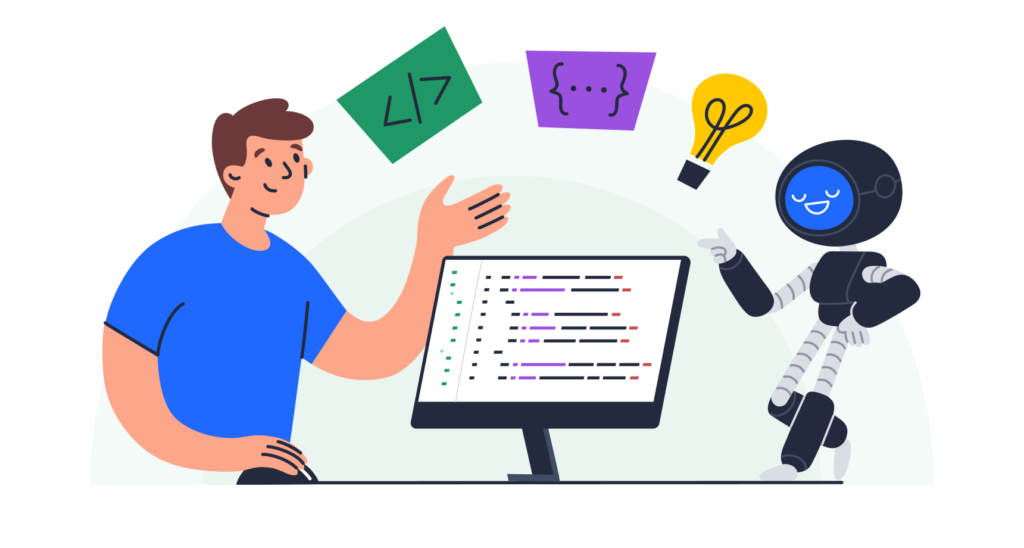

Top 10 ChatGPT Skills
As AI makes its way into all aspects of our lives, professionals who have the right ChatGPT skills will have a significant edge.
To help you stay ahead, we’ve identified the top 10 ChatGPT skills you need to succeed:
- Understanding Language Models and AI Fundamentals
- Practicing the Art of Prompt Engineering
- Integrating ChatGPT with APIs for Enhanced Functionality
- Implementing Robust Data Privacy and Security Measures
- Fine-Tuning Chatbot Parameters for Personalized Interactions
- Leveraging ChatGPT for High-Quality Content Creation and Curation
- Designing Engaging, Natural Conversations with ChatGPT
- Applying Analytical Skills to Optimize ChatGPT Performance
- Ensuring Ethical Use and Mitigating Bias in AI-Generated Content
- Collaborating Across Teams to Align ChatGPT with Business Goals
By sharpening these skills, you’ll be in a position to tackle complex challenges, streamline workflows, and gain access to exciting new career paths. In the following sections, we’ll take a closer look at each skill, providing actionable insights and real-world examples to help you become a ChatGPT expert.
1. Understanding Language Models and AI Fundamentals
Understanding the basics of language models and AI is helpful when interacting with ChatGPT. Language models, driven by artificial intelligence, power ChatGPT’s ability to comprehend and produce human-like text. This knowledge is central to a variety of uses:
- Digital marketing: Create more effective and personalized content
- Customer support: Provide human-like responses that increase satisfaction
- User engagement: Tailor interactions based on user input and context
In fact, a solid grasp of AI fundamentals can significantly improve the quality of ChatGPT’s output by enabling you to craft precise prompts. However, keeping up with the rapid advances in AI and natural language processing can be challenging. That’s where structured learning resources like Dataquest’s AI Chatbots: Harnessing the Power of Large Language Models with Chandra course come in. The global conversational AI market is projected to grow at a 23.6% compound annual growth rate through 2030. By building foundational AI skills, you’ll be well-equipped to not only interact with ChatGPT more effectively, but also stay at the forefront of this constantly evolving field.
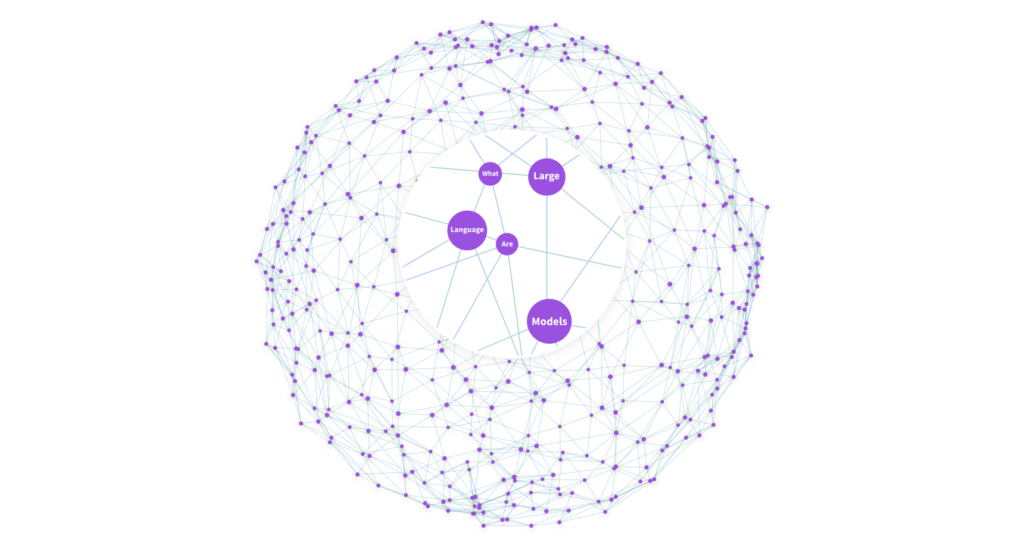

2. Practicing the Art of Prompt Engineering
Prompt engineering skills have the largest impact on your interactions with ChatGPT. They involves crafting precise, meaningful queries to guide the AI model to produce relevant, actionable responses. By improving the quality of prompts, users can significantly enhance the accuracy and utility of ChatGPT’s output for their specific needs.
Applications Across Industries
Prompt engineering has wide-ranging applications, including:
- Personalized lesson planning for life-long learners
- Streamlined code generation for software developers
- Engaging campaign creation for marketers
However, prompt engineering requires a deep understanding of AI’s capabilities and limitations. Overcoming these challenges is key to accessing ChatGPT’s full potential. Dataquest’s Prompting Large Language Models in Python course provides the foundational skills and hands-on practice needed to succeed with prompt engineering in today’s AI-driven workplace.
3. Integrating ChatGPT with APIs for Enhanced Functionality
API integration expands ChatGPT’s capabilities by connecting it with external APIs, enabling tasks like code generation, language translation, and web resource access. This skill is a must-have for creating personalized solutions and enhancing problem-solving efficiency across various applications.
Enhancing Customer Experiences and Developer Productivity
By integrating ChatGPT with external services, developers can build applications with advanced AI functionalities and natural user interactions. API integration also simplifies data exchange between systems, saving time and effort. However, working with APIs requires understanding technical documentation and prioritizing data privacy.
To apply API integration effectively, developers must stay updated with best practices. Dataquest’s APIs and Web Scraping for AI Applications course provides the knowledge and skills needed to integrate ChatGPT with external APIs successfully. By having this skill, professionals can drive innovation and efficiency in their work. What API integration possibilities do you envision for your projects?
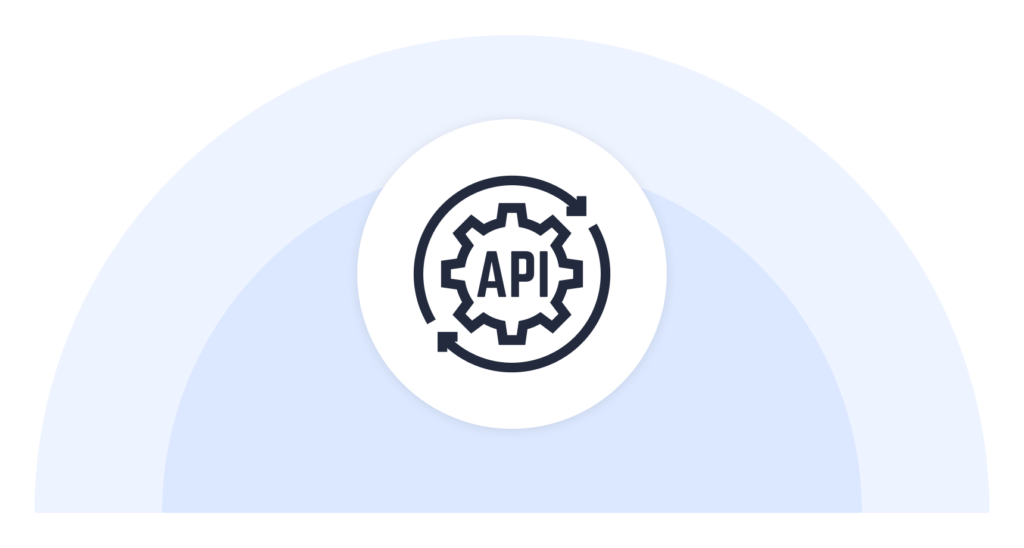

4. Implementing Robust Data Privacy and Security Measures
Implementing data privacy and security is crucial when using ChatGPT because the tool handles sensitive information and must comply with regulations like General Data Protection Regulation (GDPR). Ensuring data protection strengthens user trust in ChatGPT applications across sectors and supports legal compliance.
Data privacy and security skills are integral for safely deploying ChatGPT. Benefits of having these skills include:
- Navigating complex privacy laws effectively
- Implementing robust security measures to protect data
- Enhancing career prospects through legal compliance expertise
However, learning data privacy and security involves challenges such as understanding intricate regulations and establishing comprehensive security protocols.
Maintaining High Privacy Standards
A proactive approach to data privacy with ChatGPT includes:
- Educating users on protecting sensitive information
- Limiting personal data shared with the tool
- Ensuring secure communication through encryption
- Staying informed about ChatGPT’s data use policies
Regular audits of data management processes are also vital for complying with privacy regulations and ethical standards.
5. Fine-Tuning Chatbot Parameters for Personalized Interactions
Customizing chatbot parameters is another way of optimizing ChatGPT’s performance. By fine-tuning parameters like temperature (response randomness), output length, and variety, you can tailor the AI’s responses to your specific needs. This leads to more personalized interactions and increased productivity.
Professional Applications
In the workplace, customizing ChatGPT parameters can improve:
- Complex reasoning tasks
- Code generation
- Tailored support based on unique knowledge bases
For example, adjusting the temperature parameter balances creativity and accuracy. This is particularly useful for fields like marketing, where you need engaging and relevant content.
Benefits and Challenges
Customizing chatbot parameters provides numerous benefits, including:
- Tailoring responses to better meet user needs and preferences
- Optimizing chatbot performance for specific tasks or implementations
- Enhancing user satisfaction through more accurate and context-aware interactions
- Streamlining workflows by automating repetitive or time-consuming tasks
Customizing chatbot parameters comes with its challenges, such as understanding advanced language processing concepts and working with techniques like named entity recognition. These technical areas can feel complex at first, but with the right resources and practice, they’re entirely manageable.
And the effort is well worth it. Customizing ChatGPT allows you to create AI interactions tailored to your unique needs, whether it’s for improving customer support, building educational tools, or automating repetitive tasks. Plus, as the demand for AI expertise grows, developing this skill can open up exciting career opportunities in industries that are increasingly integrating generative AI into their operations.
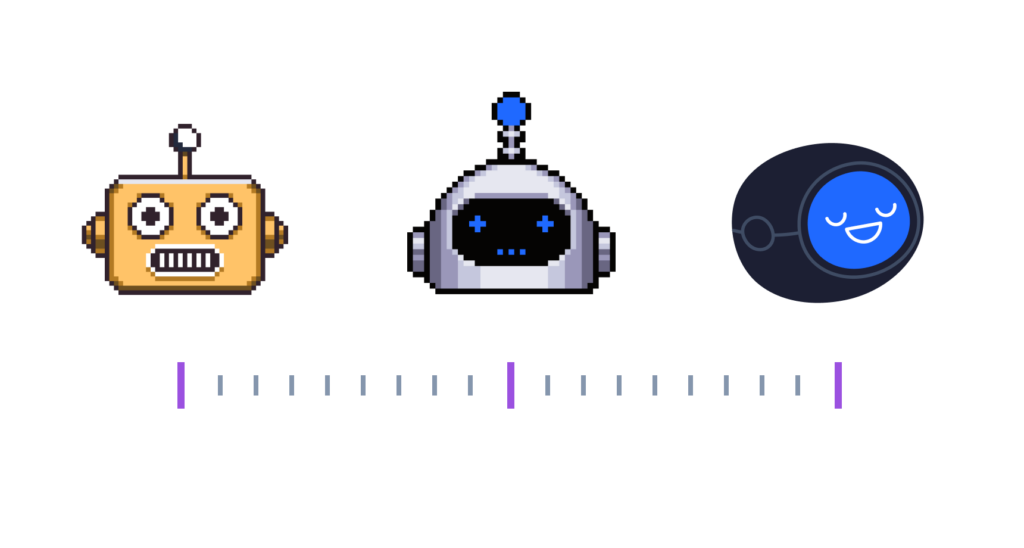

6. Using ChatGPT for High-Quality Content Creation and Curation
Content creation and curation are valuable skills for getting the most out of ChatGPT. By creating engaging, tailored content, you can enhance the chatbot’s responses and improve the overall user experience. Meanwhile, curating relevant and accurate information helps ensure ChatGPT remains a reliable tool.
With these skills, you can use ChatGPT to:
- Quickly generate high-quality, personalized content
- Increase user engagement with context-aware interactions
- Streamline content workflows across various industries
That said, using ChatGPT for content creation and curation comes with its own challenges, including:
- Adapting content to diverse audience needs
- Maintaining context accuracy in complex scenarios
- Ensuring content quality, factual accuracy, and ethical use
An insightful Medium article highlights how AI is opening up new opportunities for content creation, enabling professionals to push boundaries and rethink traditional approaches. Developing these skills gives you a competitive advantage and opens new possibilities for using ChatGPT in innovative ways. How do you see ChatGPT improving content creation in your own projects?
7. Designing Engaging, Natural Conversations with ChatGPT
Conversational design is a critical skill for making interactions with ChatGPT engaging and productive. It involves creating dialogues that feel natural, like a conversation between two people. This enhances the user experience across a wide range of applications, from educational tools to customer service chatbots.
With strong conversational design, ChatGPT can:
- Create educational content that facilitates interactive learning
- Provide personalized customer support by understanding and addressing user needs
- Guide users through complex processes with step-by-step instructions
Developing conversational design skills offers significant professional benefits. You’ll be able to create efficient, tailored experiences that boost user satisfaction. Plus, as the demand for AI and chatbot developers grows, having this expertise can lead to exciting, high-paying career opportunities. However, building these skills does involve challenges, such as learning advanced natural language processing techniques and writing effective prompts.
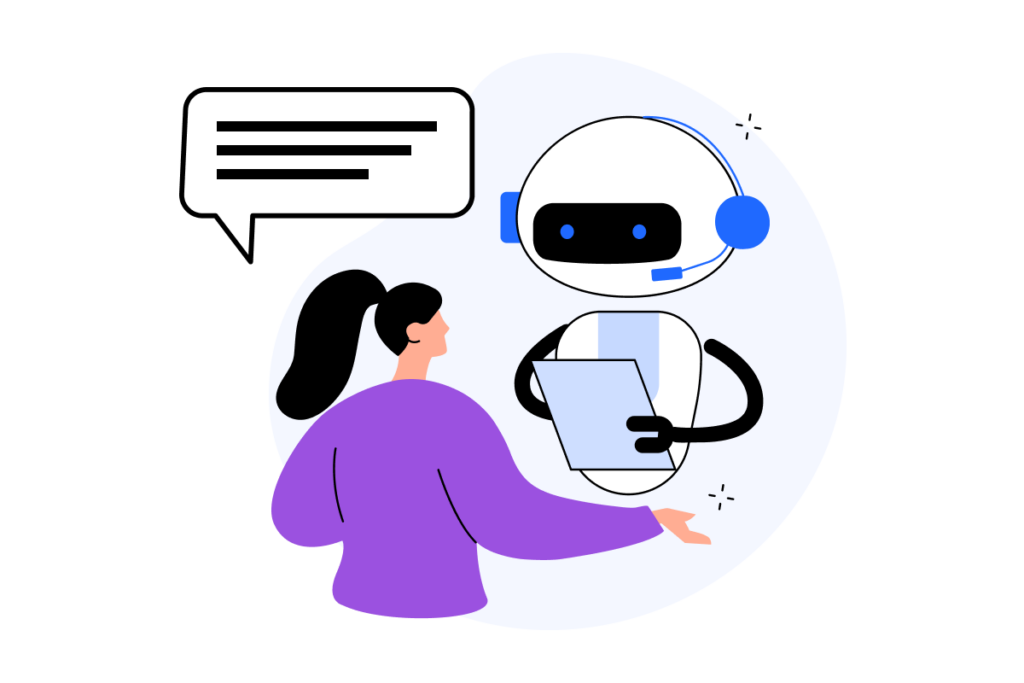

8. Applying Analytical Skills to Optimize ChatGPT Performance
Analytical skills are critical for using ChatGPT effectively in data analysis, education, and ethical AI practices. These skills allow users to assess ChatGPT’s capabilities, optimize its use for specific goals, and responsibly apply AI technology.
Broad Professional Applications
Analytical skills have wide-ranging professional uses, such as:
- Helping educators evaluate ChatGPT’s impact on learning outcomes
- Enabling decision-makers to interpret ChatGPT data analysis for strategic planning
- Enhancing AI and chatbot technology careers by informing user-centric, ethical solutions
However, developing strong analytical skills involves challenges, like balancing technology use with critical thinking to maintain ethical standards. This balance ensures AI complements human intellect rather than replacing it.
9. Ensuring Ethical Use and Mitigating Bias in AI-Generated Content
Using ChatGPT ethically and reducing bias are critical for the technology to operate within ethical boundaries and promote fairness. Addressing these issues helps create trustworthy, effective AI systems across various sectors.
For ChatGPT, ethical use means deploying the technology in ways that:
- Respect user privacy
- Ensure security
- Avoid harm
Bias mitigation involves:
- Identifying biases in AI responses that may come from skewed training data
- Reducing these biases
Applying ethical use and bias mitigation has a broad impact. It can:
- Enhance reliability in healthcare decisions
- Ensure fairness in hiring
- Foster inclusivity in personalized user experiences
Learning these skills advances career opportunities by aligning with ethical standards. It also builds user trust. Challenges include consistently applying the practices as data updates and AI becomes more complex. However, regular audits, using diverse datasets, and human oversight can help.
10. Collaborating Across Teams to Align ChatGPT with Business Goals
Cross-functional collaboration is key when working with ChatGPT in a business setting. When teams from different areas work together, they can align ChatGPT with specific goals and benefit from shared knowledge. This leads to better productivity, communication, and innovation across teams.
For example, a business team with data scientists, legal experts, and marketers can use ChatGPT to improve operations. They can develop AI strategies that follow laws and market trends. In education, teachers and technologists can work together to create personalized learning experiences that adjust to each student’s needs.
Benefits and Challenges
Cross-functional collaboration helps professionals advance their careers in AI and chatbot technologies. It builds skills to lead diverse teams and use AI tools like ChatGPT effectively. However, it can be challenging to manage communication and roles across teams. Despite these challenges, learning to collaborate across functions is a valuable skill.
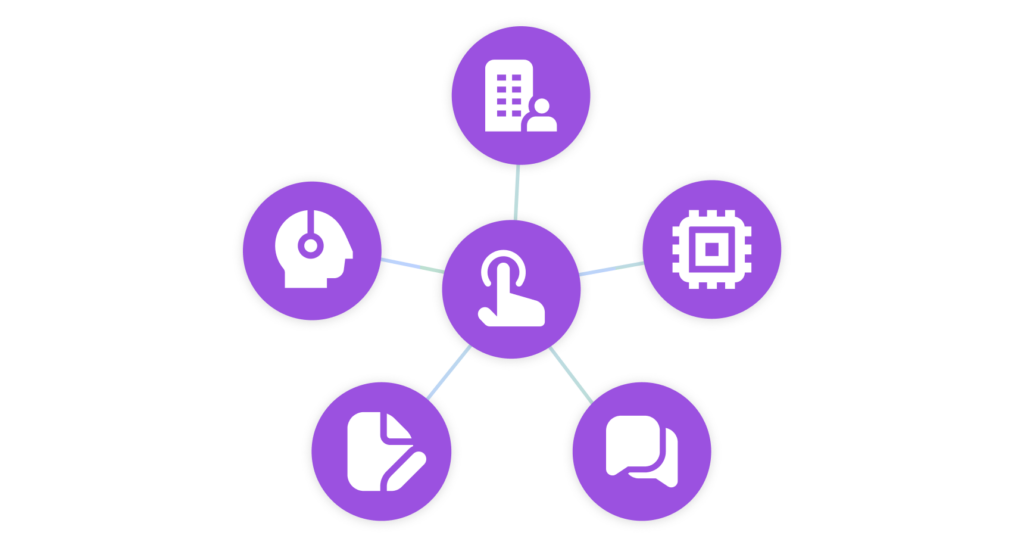

Common Misconceptions and Challenges
As enthusiasm for ChatGPT grows, it’s important to understand its true capabilities and limitations. Let’s explore two common misconceptions and the challenges professionals face when using this powerful tool.
Misconception #1: ChatGPT Can Reason Like Humans
A prevalent myth is that ChatGPT possesses human-like reasoning abilities. While the model can generate impressive responses, it lacks true understanding and often struggles with complex logical inferences. When comparing ChatGPT to human intelligence, we see that the model operates based on patterns in data rather than genuine comprehension, which can sometimes lead to unrealistic expectations in professional settings.
Misconception #2: ChatGPT Doesn’t Require Careful Prompting
Another common misconception is that ChatGPT can magically provide the desired output without well-crafted prompts. In reality, effective prompting is needed for eliciting accurate and relevant responses. Professionals must invest time in learning prompt engineering skills to get close to ChatGPT’s full potential across various use cases, from content creation to data analysis.
The Challenge of Strategic Implementation
Beyond misconceptions, organizations face the challenge of strategically integrating ChatGPT into their workflows. Without careful planning and consideration of the technology’s limitations, businesses risk investing in AI initiatives that fail to deliver meaningful results. To navigate this challenge, professionals must develop a deep understanding of ChatGPT’s capabilities and align its use with well-defined goals.
Overcoming these misconceptions and challenges requires a commitment to continuous learning. Our Generative AI Fundamentals in Python skill path gives professionals the knowledge and skills needed to effectively leverage ChatGPT, from prompt engineering to understanding the technology’s real-world implications. By building a strong foundation, you’ll be able to take advantage of ChatGPT’s capabilities while avoiding common pitfalls.
How to Start Learning ChatGPT Skills
Begin your ChatGPT learning journey by building a strong foundation in key concepts such as:
- Language models and AI basics
- Prompt engineering techniques
- API integration strategies
- Data privacy best practices
Choose Quality Learning Resources
To maximize your learning outcomes, select resources that provide a balanced blend of theoretical knowledge and practical application. Look for courses and tutorials that:
- Explain concepts clearly and concisely
- Offer hands-on coding exercises
- Emphasize responsible AI practices
Dataquest’s project-based curriculum is designed to help you build job-ready ChatGPT skills while prioritizing data privacy and ethical AI use.
Reinforce Skills Through Projects
Solidify your ChatGPT knowledge by applying it to real-world projects. Consider developing:
- AI-powered chatbots for customer support
- Content generation tools using ChatGPT
- Data analysis applications enhanced with ChatGPT insights
Hands-on projects not only deepen your understanding but also demonstrate your proficiency to potential employers.
Embrace Continuous Learning
To keep up in the constantly advancing field of AI, commit yourself to ongoing learning. Stay current by:
- Enrolling in cutting-edge online courses
- Exploring new ChatGPT features and use cases
- Engaging with AI communities on platforms like LinkedIn
- Attending industry conferences and webinars
Continuous learning ensures you remain at the forefront of ChatGPT advancements and capitalize on emerging opportunities.


Why Choose Dataquest to Learn ChatGPT and Generative AI?
Dataquest offers an immersive, project-based approach to learning ChatGPT and generative AI skills. Our interactive courses give you the chance to gain hands-on experience:
Through our guided projects, you’ll work directly with ChatGPT and other cutting-edge AI technologies, gaining practical skills and confidence.
Job-Focused Curriculum
Dataquest’s project-based curriculum is designed to teach you the most in-demand generative AI skills. Developed in partnership with industry experts, our courses challenge you to apply ChatGPT and related technologies to solve real business problems. You’ll learn to automate complex workflows, generate content, and build powerful AI applications―valuable capabilities that employers seek.
Vibrant Learning Community
As a Dataquest learner, you’ll be part of a dynamic community of data and AI professionals. Collaborate with peers on projects, exchange insights, and build your professional network. This supportive environment fosters continuous learning, enabling you to stay current with the latest generative AI advancements and industry best practices.
Accelerate Your Generative AI Career
Our curriculum equips you with the skills to thrive in the field of generative AI. Through hands-on projects and instruction, you’ll learn Python programming, prompt engineering, API integration, and AI application development – competencies that will differentiate you in the job market.
Generative AI is transforming industries and creating unprecedented opportunities. Professionals with practical generative AI skills will be at the forefront of this revolution, driving innovation and efficiency. With Dataquest’s immersive, project-focused curriculum, you’ll gain the ability to become a leader in this exciting field and accelerate your career.
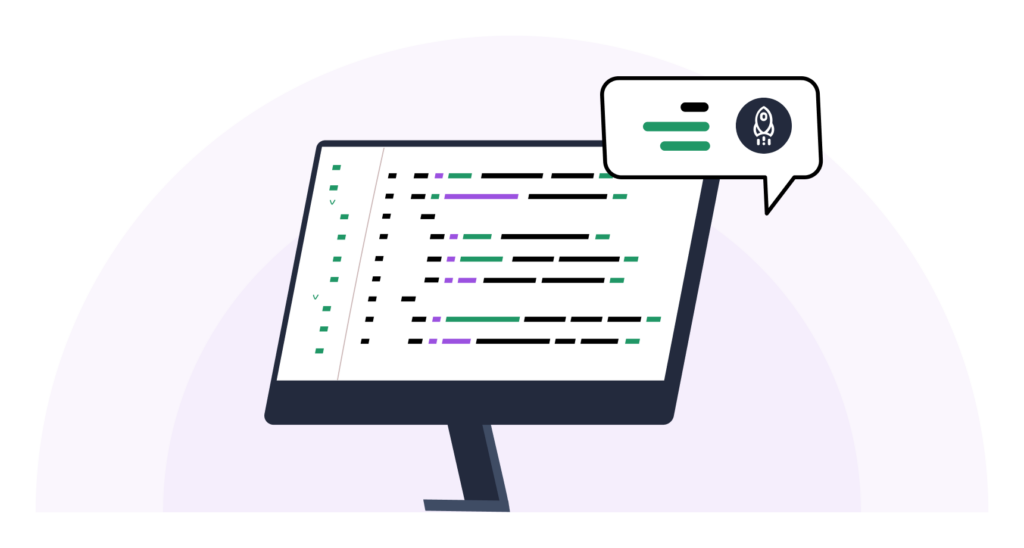

Conclusion
As generative AI continues to transform industries, ChatGPT skills have become essential for professionals seeking to stay competitive and advance their careers. By developing skills in areas like prompt engineering, API integration, and conversational design, you’ll be able to get the most out of ChatGPT while driving innovation in your area of expertise.
To learn ChatGPT skills effectively, focus on:
- Building a strong foundation in generative AI concepts and techniques
- Gaining hands-on experience with ChatGPT through practical projects
- Leveraging structured learning resources like Dataquest’s Generative AI Fundamentals in Python skill path
As you develop your ChatGPT proficiency, remember to prioritize responsible AI practices, continuous learning, and collaboration with other professionals. By staying keeping up with generative AI advancements, you’ll position yourself for exciting opportunities and long-term success!

